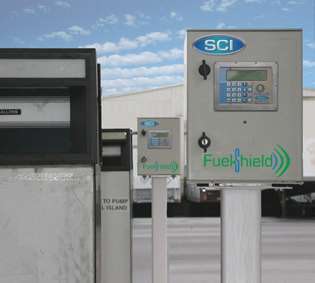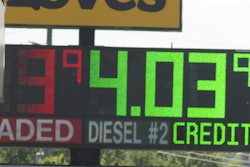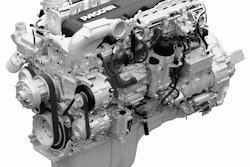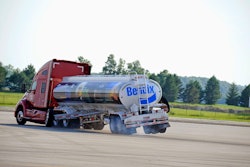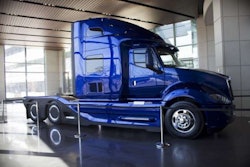Credit card misuse, hot fuel and short-changed fuel deliveries cited as key points for fleets to monitor
Fuel fraud. It happens every day.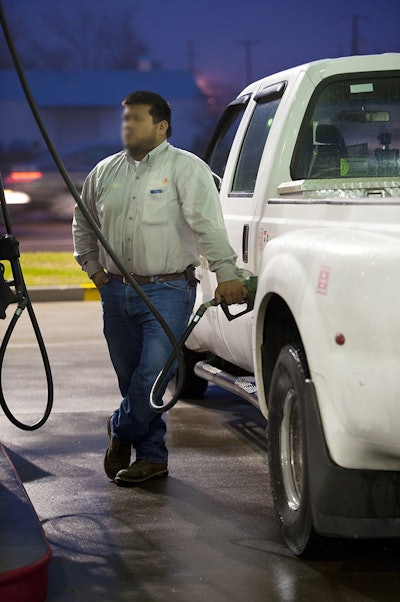
No one knows that better than Uncle Sam. Since 2010, federal employees have embezzled $2.4 million of taxpayer money through government-issued gas card scams, according to an NBC 4 News investigative report (1).
The report revealed 260 cases of federal worker gas card fraud including a Fort Monroe Army despatcher who stole government fleet cards to purchase $300,000 in gas for her own personal use and resale.
Two D.C. municipal workers were also recently charged with fraud for personal use of government-funded gas cards.
While federal investigators work hard to detect fraudulent activity, the Government Services Administration (GSA) Office concedes gas theft is discovered after the fact.
SCI Distribution, LLC, a provider of wireless fleet and fuel management software, says that fuel fraud can be limited with the use of a proprietary automation that levies technology to the benefit of the government and the private sectors.
A review of federal audits and court records by the News4 I-Team found about 260 cases of gas theft by government workers nationwide in the past five years, including several cases in the Washington, D.C. area, costing taxpayers thousands in the process. (1)
Per the GSA’s Federal Motor Vehicle Fleet Report (2), in 2012 the U.S. government’s fleet consisted of more than 650,000 vehicles which drove over 5 billion miles, consumed $400 million dollars of gas and cost $4 billion to operate.
With over half a billion federally-owned vehicles in use around the world, the financial loss from undetected gas theft is incalculable and likely staggering.
The Association of Certified Fraud Examiners describes the “Fraud Triangle,” a hypothesis by criminologist Dr. Donald R. Cressey in which three common denominators that cause an individual to commit occupational fraud are identified: perceived unshareable financial need, perceived opportunity, and rationalization.(3)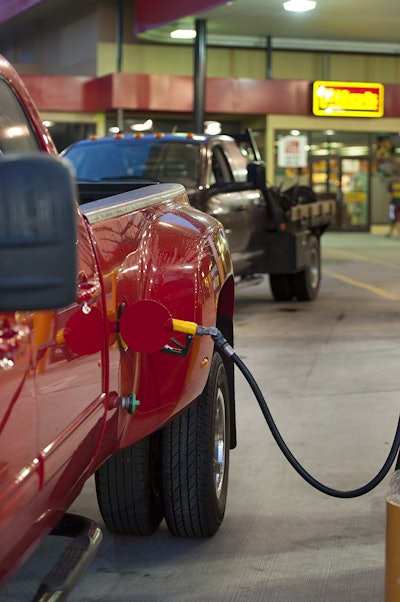
While pressure and rationalization may be impossible to detect, education of government fleet managers in gas fraud practices can reduce opportunity, per Tal Ezra, Founder and CEO of SCI Distribution. According to Ezra, prevalent fuel theft schemes include:
- Credit Card Misuse—The most widely-publicized method of gas fraud, drivers swipe government- or company-issued gas credit cards to purchase gas for their personal use, to tank up unauthorized vehicles at a discounted price and pocket the proceeds or fill jerry-cans with fuel for resale.
- Short-Changed Deliveries—Within the industry itself, fuel delivery drivers shortchange fleet and gas station operators by delivering less gas than was ordered. Such theft is readily prevented by the customer comparing the quantity received against its bill of lading. Yet, some 70% of fuel deliveries go unverified, opening the door to gas theft. One trick of the trade is for a driver to place mattresses on the floor of the tank. Once deliveries are made and the tank is “empty,” the driver compresses the mattresses to retrieve the absorbed fuel and sells it at a handsome profit. Another common ploy is to replace a portion of the gas shipment with water.
- Hot Fuel—Heated diesel fuel expands and occupies more volume than at normal temperatures. When a depot dispenses fuel to a tanker at the warmest time of day, the tanker can receive up to 6% less fuel than was ordered with no hint of wrongdoing.

Traditionally, government and private fleet operators have relied on fleet and fuel management software systems including databases to monitor driver activities and fuel consumption. These systems, however, are typically ill-equipped to detect or prevent the wide range of gas fraud schemes in play.
“Fuel theft drains a fleet’s operating expenses,” says Ezra. “To reduce these costs, every chance for theft must be identified and tracked.”
Ezra’s inventive approach to addressing the industry-wide controversy is reflected in his firm’s devices which utilize prevention, detection and verification processes to reduce fuel theft – thereby increasing profits, cutting administrative costs by up to 30%, and reducing fuel consumption.
Nonetheless, Ezra beats the drum for increased gas fraud awareness.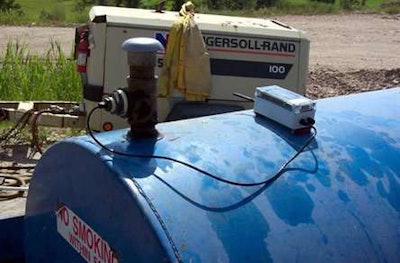
As the first to bring both wireless fuel management technology and hands-free systems operation to the industry, SCI has discovered that businesses can create more opportunities for growth, technology and employment by implementing technologies that reduce the consumption of fuel – which, in turn, would create an easier management system to reduce fuel fraud and collectively change the game of how fuel and fleet management take place.
“My mission is to help businesses and governments better understand the methods of fuel theft,” Ezra adds, “only then can we make progress in ending the rampant fraudulent nature surrounding fuel management.”
- “$2.4M in Government Gas Theft Since 2010.” NBC4 Washington. N.p., 20 Mar. 2015. Web. 3 Apr. 2015. nbcwashington.com/investigations/24-Million-in-Gas-Theft-by-Government-Workers-Reported-Since-2010-293926031.html.
- “Federal Motor Vehicle Fleet Report FY 2012.” U.S. General Services Administration, n.d. Web. 3 Apr. 2015. gsa.gov/portal/mediaId/181179/fileName/FY_2012_Federal_Fleet_Report.action.
- “The Fraud Triangle.” Association of Certified Fraud Examiners, n.d. Web. 3 Apr. 2015. acfe.com/fraud-triangle.aspx.
